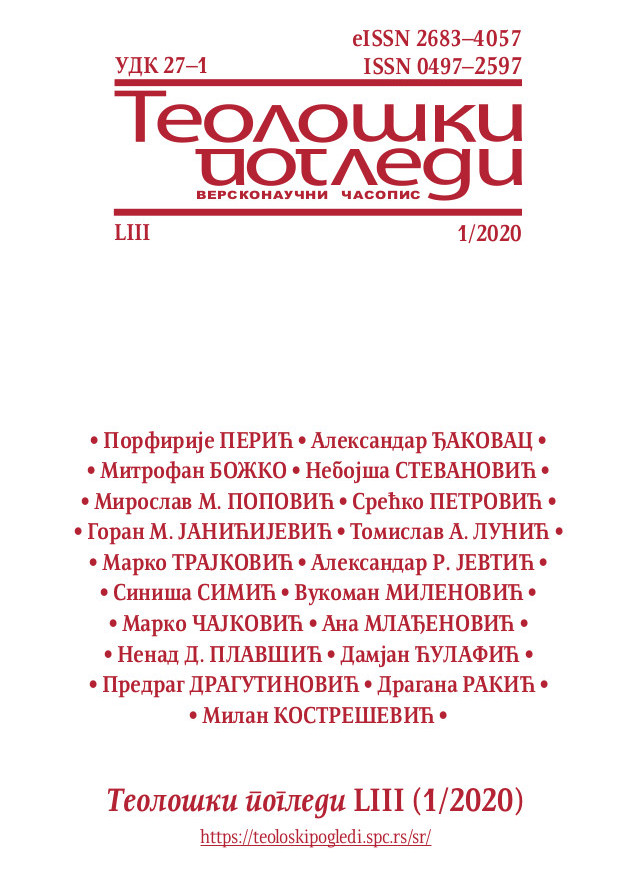Морално оправдање абортуса
Moral Justification of Abortion
Author(s): Siniša SimićSubject(s): Health and medicine and law
Published by: Свети Архијерејски Синод
Keywords: sex; pregnancy; fetus; abortion; moral justification
Summary/Abstract: In this paper l will address the question of moral justification of abortion. The question of abortion is de facto one of the most important topics of bioethics. Abortion, the term itself, in the modern age, at least prima facie, is considered as a form of contraception. I will try to point out the distinction between these two terms. Purpose of the research is an attempt to propose an answer to the question: in which case might an abortion be a morally justifiable act, and in which case would it represent a morally problematic intervention. The answer will apply to all cases of abortion except: medical needs for prenatal euthanasia, pregnancy as a result of rape, conception despite the correct and responsible use of contraceptives and pregnancy as a result of fraud by one of the actors of the sexual act. In cases previously mentioned I will accept abortion as a morally justified act. In a part of a review of the historical context, we will see a lot of interesting arguments and suggestions on where a line should be drawn between moral justification and moral unjustification, and between permitting or prohibiting the abortion. In this context, I will consider the cases in which abortion would be morally acceptable, and I will consider the moment of birth, a moment when the fetus is able to survive outside the mother’s womb, the time of revival, personal identity and the moment of conception. Basically, opting for each of the mentioned points is a matter of a person as an object of protection. Afterwards, I will show some of the crucial moments of mentioned arguments, as the most convincing point, I will consider the notion of personal identity in detail. That is the period of cellular differentiation, where cells lose totipotency and specialize for certain functions. The next is the argument of potentiality, I consider we also have a responsibility to, a pre-embryo has a personal identity, we have to accept it as a subject of protection to the same extent as we do a person. In this way, I will answer the question I set out as a purpose of this research.
Journal: Теолошки погледи
- Issue Year: LIII/2020
- Issue No: 1
- Page Range: 193-220
- Page Count: 28
- Language: Serbian

